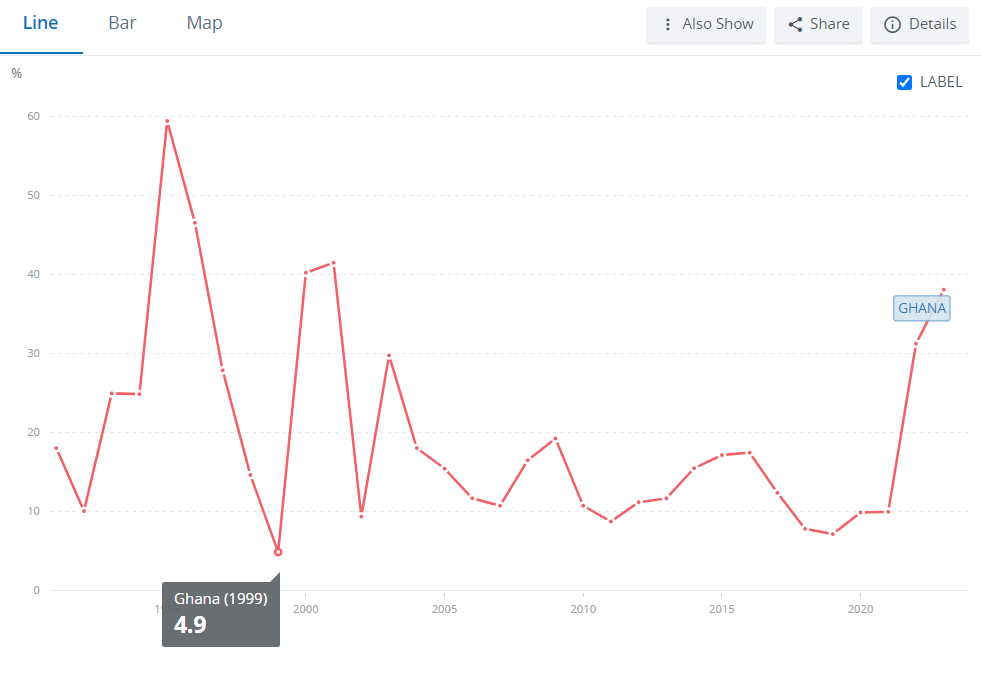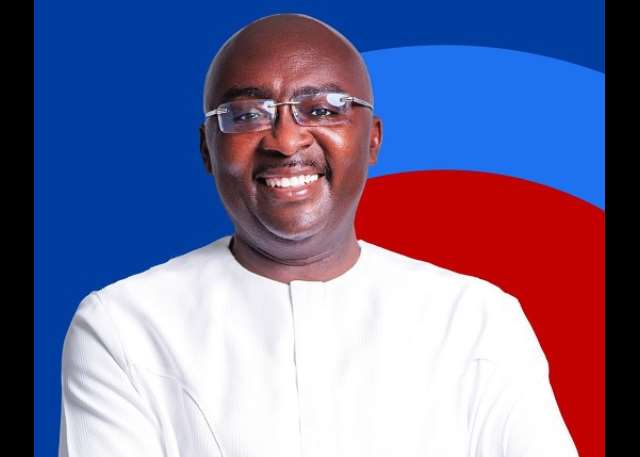The New Patriotic Party (NPP) on August 18, 2024, launched its manifesto ahead of the December 2024 presidential and parliamentary elections in an attempt to woo voters.
The party’s flagbearer and current Vice President, Dr Mahamudu Bawumia during his address to teaming party supporters highlighted some major achievements of the government since 2017 and encouraged voters to continue to support the NPP.
The economy remains a major factor voters have considered in making a choice during previous elections, and the New Patriotic Party (NPP) is touting its superior record in management of the economy as compared to the main opposition the National Democratic Congress (NDC).
In this report, GhanaFact will verify some of the claims made in the Manifesto.
Claim 1
“By the end of 2016, Ghana’s economy was in deep crisis. Growth had consistently fallen, year after year from 2011 (when oil production started), until it reached the lowest point of 3.4% at the end of 2016.”
Fact-check
Economic growth is the increase in the capacity of an economy to produce goods and services, compared from one period of time to another and can be measured in nominal or real terms.
GhanaFact verified the claim based on data collected from the Ghana Statistical Service (GSS) and the World Bank between 2011 and 2016.
| Year | Growth rate (GSS) |
| 2011 | 14.0 |
| 2012 | 9.3 |
| 2013 | 7.3 |
| 2014 | 4.0 |
| 2015 | 3.8 |
| 2016 | 3.7 (rebased) |
The claim that Ghana’s growth rate fell consistently within the period is supported by data from the GSS as shown in the table above but the 2016 growth rate is 3.7% according to the GSS per rebased figures published in 2018.
So, notwithstanding the fact that the World Bank in its reporting states that the 2016 growth rate is 3.4%, it will be misleading to use that rate since it was subsequently updated by the Ghana Statistical Service after rebasing the economy.
Verdict
Therefore, the claim is rated MISLEADING.
Claim 2
“The preceding four years was a period of macroeconomic instability, characterised by both internal and external imbalances. Between 2013 and 2016, the cedi depreciated by an average of 17.7%, and the Extended Credit Facility (ECF) programme with the International Monetary Fund (“IMF”, “Fund”) had gone off the rails.”
Fact-check:
According to annual reports by the Bank of Ghana (BoG), the rates of depreciation over the Mahama years in government were as follows:
| Year | Depreciation rate |
| 2013 | 14.5% |
| 2014 | 31.3% |
| 2015 | 15.7% |
| 2016 |
9.6% |
From the above, the total depreciation comes up to 71.1%, when the average is struck, you get 17.777%.
Verdict
The claim is rated TRUE.
Claim 3
Inflation dropped within the target band of 8 ± 2%, falling as low as 7.9% in 2019, the lowest in 28 years. The low inflation was already attracting calls for retargeting the rate, as some analysts then believed that Ghana would outperform the lower band of 6%.
Fact-check
GhanaFact checked the veracity of the 2019 inflation figure and whether it was the lowest in close to three decades.
According to data from the Ghana Statistical Service, the 2019 annual inflation figure stood at 7.9%.
Meanwhile, publicly available statistics from the World Bank show that the 2019 annual inflation rate is not the lowest Ghana has recorded in 28 years. The World Bank data indicated that Ghana recorded an inflation rate of 4.9% in 1999.

Verdict
The claim is rated FALSE.
Claim 4
“The average bank lending rate also declined, from 30.7% in 2016 to 26.2% in 2017, 24% in 2018 and further down to 23.6% in 2019.”
Fact-check
The lending rate according to the Ghana Statistical Service is the average interest rates charged by commercial banks on loans given to households and firms in the country.
GhanaFact referenced the 2020 Annual Report of the Bank of Ghana in respect of the lending rates with the rates for the years in question, 2016, 2017, 2018 and 2019 being captured as 31.2%, 29.3%, 24.0% and 23.6% respectively.
| Year | NPP manifesto | BoG figure |
| 2016 | 30.7 | 31.2 |
| 2017 | 26.2 | 29.3 |
| 2018 | 24 | 24 |
| 2019 | 23.6 | 23.6 |
Verdict
From the table above, the figures for 2018 and 2019 are correct while those for 2016 and 2017 are incorrect. Therefore, the claim is PARTLY FALSE.
By: GhanaFact Newsroom



